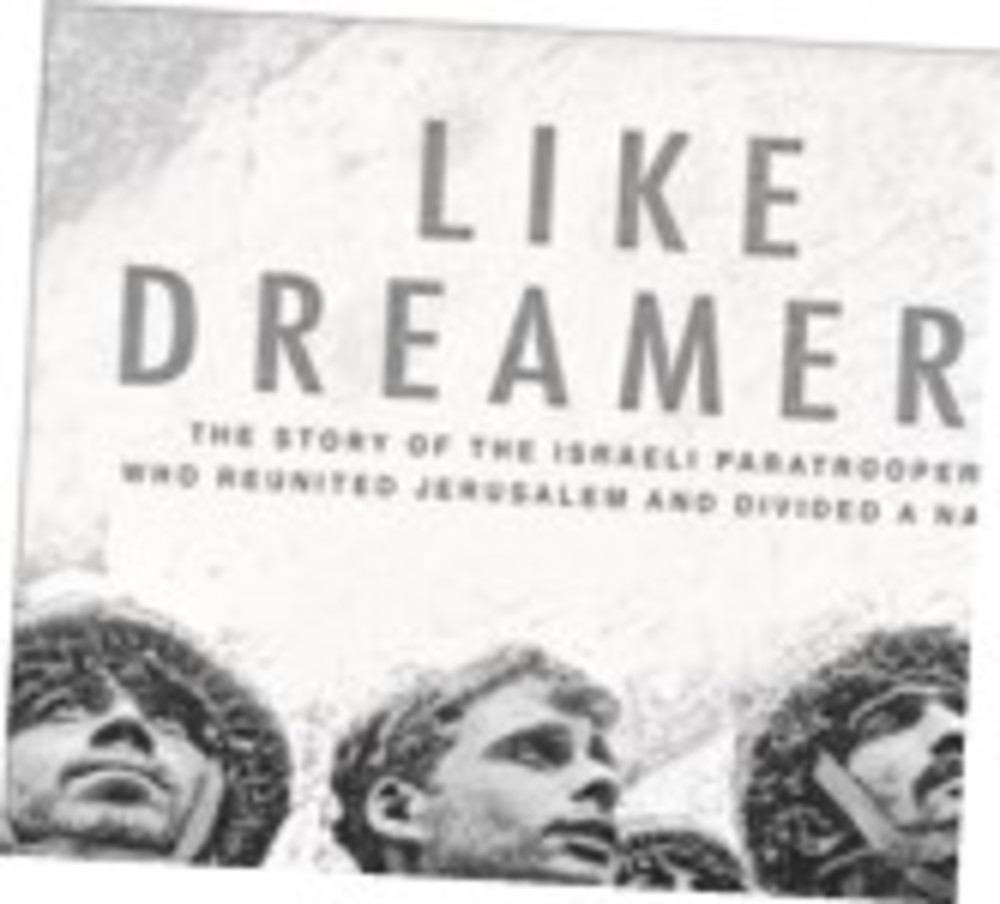Dreaming of unity, through the lens of Israeli paratroopers
 Religious Zionism and the kibbutz movement, Israeli author and think-tanker Yossi Klein Halevi recently told me, are “the two messianic streams within Zionism that wanted more than just a safe refuge for the Jewish people.” In his estimation, those forces – as well as their internal struggle and their collective battle against the “normalizing” forces of Israeli society – have shaped Israeli history since the conclusion of the 1967 Six-Day War.
Religious Zionism and the kibbutz movement, Israeli author and think-tanker Yossi Klein Halevi recently told me, are “the two messianic streams within Zionism that wanted more than just a safe refuge for the Jewish people.” In his estimation, those forces – as well as their internal struggle and their collective battle against the “normalizing” forces of Israeli society – have shaped Israeli history since the conclusion of the 1967 Six-Day War.
In “Like Dreamers,” a new book assessing the battle for Jerusalem and its legacy, Klein Halevi skillfully explores these intersecting forces by examining the brigade of Israeli paratroopers that reunited Israel’s capital. “For me, what this book really is about is the fate of Israel’s utopian dreams,” said Klein Halevi, a research fellow at the Shalom Hartman Institute.
The book traces the professional and personal trajectories of seven veterans of the 55th Brigade, including Arik Achmon, the kibbutznik chief intelligence officer turned avid capitalist; Yoel Bin-Nun, rabbi and founder of two settlements and a yeshiva in Judea and Samaria; Meir Ariel, poet-singer who wrote and performed “Jerusalem of Iron” in the immediate wake of the 1967 war; a conceptual artist and environmentalist; two religious Zionists who spearheaded the Gush Emunim settlement movement; and even a disillusioned Leftist who allied with Syria.
The book, Klein Halevi told me, originated in a newspaper article about the brigade he read in an Israeli daily some 15 years ago. “I remember being struck by that and thought this would make an interesting article someday,” the author said. “And it turned into an 11-year article.”
This book-length article, which Klein Halevi regards as a “deeply revealing group and individual portrait,” traverses Israel’s political, cultural, economic and spiritual divides by illuminating the transition of the movement to settle the West Bank and Gaza from a secular to a religious enterprise, as well as the slow but inexorable transformation of its economy from lethargic socialist basket-case to thriving capitalist success.
This careful analysis includes wartime, when these seven men from wildly divergent backgrounds unite against a common enemy, as well as peacetime, when “they’re fighting often with each other to help shape the character and the destiny of Israel” – a vitality, Klein Halevi said, that “impels us forward, but also is often the cause of our stalemate against ourselves.”
Yet by the end of the story in the mid-2000s – or at least where Klein Halevi chooses to end it – the stalemate breaks, at least modestly, as Israelis have come to embrace a grudging, tough-nosed centrism, even unity, as illustrated by the book’s final vignette: Bin-Nun’s re-enactment of the battle for Jerusalem in front of a religiously and politically ecumenical crowd.
“After 45 years of vehement and often brutal disagreement between Left and Right,” Klein Halevi told me, “a majority of Israelis today are a little bit Left and a little bit Right at the same time.” He’s optimistic about “the emergence of a new political sobriety in Israel,” but cautions that, perhaps paradoxically, “being a centrist in the Israeli context means you strongly embrace opposite principles.”
Of course, many chapters remain to be written in Israel’s enduring story, but the ones Klein Halevi tells well in “Like Dreamers” result from tireless journalistic efforts.
The author struggled with “a deep reluctance on the part of some of the key personalities to truly open up” – par for the course for Israelis of that generation. At the beginning of the project, his subjects regarded him as a yeled chutz – a negative term meaning “outsider child” that carries connotations from kibbutz days. Yet Klein Halevi wore this term as a badge of pride, noting that “maybe only a yeled chutz could have written this book … an attempt to create a unified narrative of the last 45 years that embraces Left and Right in the same story.”
Indeed, some of the keenest socio-political analyses in modern history were written by outsiders – Alexis de Tocqueville’s “Democracy in America” comes to mind. Here, on a smaller scale, Klein Halevi weaves a tale that is both impassioned and dispassionate, engaged and impartial, revealing and objective. Regarding his characters, the author confided that he feels a personal attachment “to every one of them,” and yet, throughout “Like Dreamers,” he subjects their individual and ideological arcs to vigorous, although always sensitive, scrutiny.
Klein Halevi characterized the book, which he researched and wrote over the course of more than a decade, as “a combination of intense frustration and occasional exhilaration … a nagging feeling that I’m not doing this story justice.” He needn’t worry. As a work of political, cultural, and religious history, “Like Dreamers” is a triumph.
“Like Dreamers: The Story of the Israeli Paratroopers Who Reunited Jerusalem and Divided a Nation,” by Yossi Klein Halevi.
Michael M. Rosen (michaelmrosen@yahoo.com) is an attorney and writer in San Diego.







